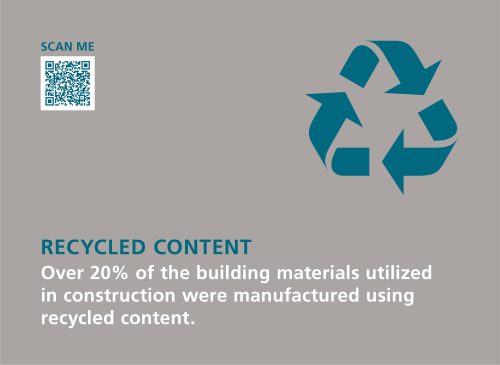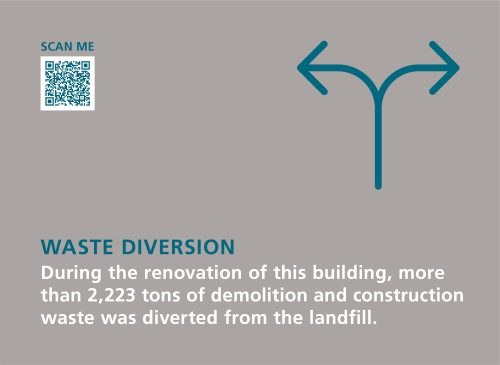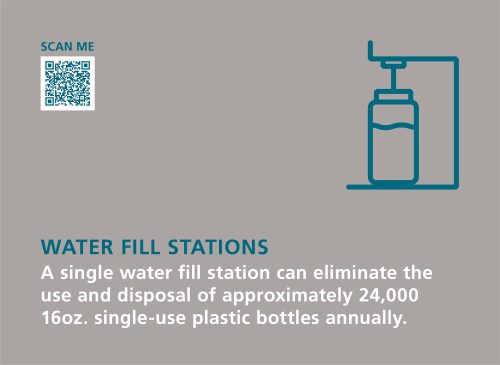Waste Reduction
Extensive recycling and composting programs exist on each campus, including closed-loop models such as where food waste is composted on site and then used in the garden to grow food for consumption on campus. Beyond standard recycling and composting, PCC consistently works towards preventing emissions from solid waste made by individual consumers. Learn more about PCC’s efforts.
Recycled Content
PCC strives to ensure that over 20% of the building materials have been manufactured with recycled content products. This reduces fossil fuel emissions associated with using virgin materials.

Waste Diversion
Through PCC’s Design and Construction Standards and the Climate Action Plan, PCC is committed to diverting at least 75% of waste from construction projects away from the landfill. This reduces emissions associated with sending materials to the landfill and the degrading process.

Waste Reduction
PCC has compost programs in each campus kitchen and most cafeterias. Look around for a compost bin before tossing in the landfill bin. Some of the compost is used to feed worms in the learning garden, which enriches the soil used in the gardens, while the remainder is sent to compost facilities. For more information about Waste and Recycling at PCC visit our webpage.
Water Fill Station
You can find water fill stations across the college campuses and centers. These provide easy access to clean drinking water and reduce the amount of single-use plastic water bottles.

